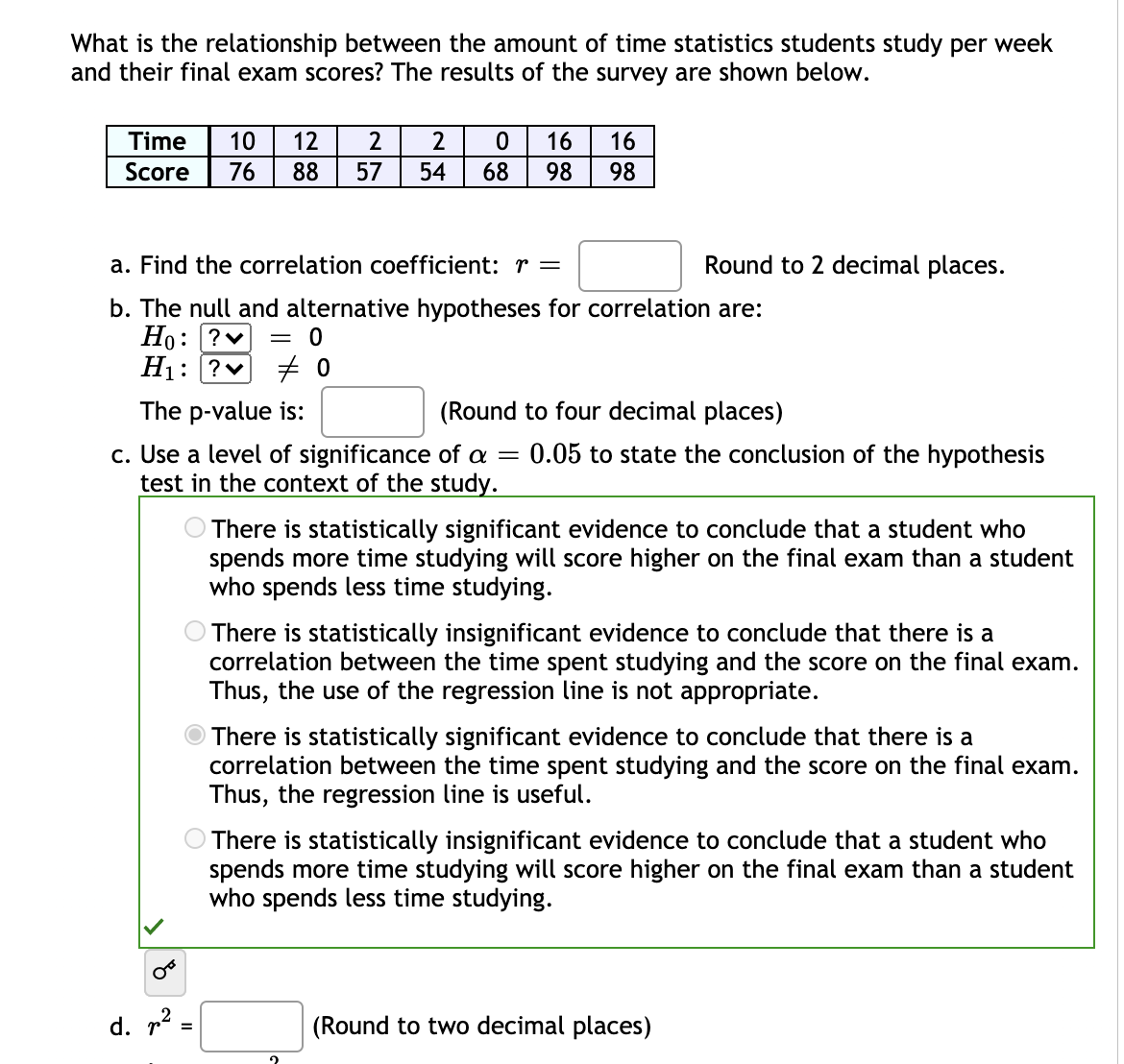What is the relationship between the amount of time statistics students study per week and their final exam scores? The results of the survey are shown below. Time 10 12 2 16 16 Score 76 88 57 54 68 98 98 a. Find the correlation coefficient: r = Round to 2 decimal places. b. The null and alternative hypotheses for correlation are: Но: [?v H1: ?v = 0 The p-value is: (Round to four decimal places) c. Use a level of significance of a = 0.05 to state the conclusion of the hypothesis test in the context of the study. O There is statistically significant evidence to conclude that a student who spends more time studying will score higher on the final exam than a student who spends less time studying. O There is statistically insignificant evidence to conclude that there is a correlation between the time spent studying and the score on the final exam. Thus, the use of the regression line is not appropriate. There is statistically significant evidence to conclude that there is a correlation between the time spent studying and the score on the final exam. Thus, the regression line is useful. O There is statistically insignificant evidence to conclude that a student who spends more time studying will score higher on the final exam than a student who spends less time studying. d. p2 : (Round to two decimal places)
Permutations and Combinations
If there are 5 dishes, they can be relished in any order at a time. In permutation, it should be in a particular order. In combination, the order does not matter. Take 3 letters a, b, and c. The possible ways of pairing any two letters are ab, bc, ac, ba, cb and ca. It is in a particular order. So, this can be called the permutation of a, b, and c. But if the order does not matter then ab is the same as ba. Similarly, bc is the same as cb and ac is the same as ca. Here the list has ab, bc, and ac alone. This can be called the combination of a, b, and c.
Counting Theory
The fundamental counting principle is a rule that is used to count the total number of possible outcomes in a given situation.
Please answer A, B, D, F, & G. Thank you!


Trending now
This is a popular solution!
Step by step
Solved in 3 steps with 4 images


